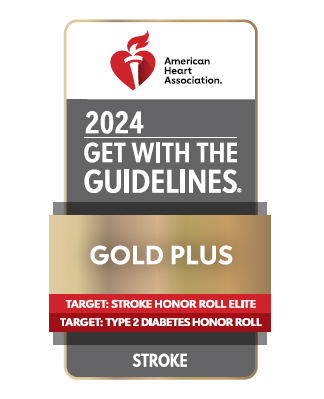Piedmont Fayette Hospital recently received three achievement awards from the American Heart Association/American Stroke Association for demonstrating commitment to following the latest research-based guidelines for the treatment of stroke and diabetes, ultimately leading to more lives saved, shorter recovery times and fewer hospital readmissions.
This year, Piedmont Fayette received the following achievement awards:
• Get With The Guidelines-Stroke Gold Plus Award
• Target: Stroke Honor Roll Elite
• Target: Type 2 Diabetes Honor Roll
“Piedmont Fayette is honored to be recognized for our dedication to helping stroke patients have the best possible chance of survival and quality of life,” said Lisa Jackson, manager of the stroke program at Piedmont Fayette. “Every 40 seconds, someone in the U.S. has a stroke, and it is the fifth leading cause of death and a leading cause of adult disability in the U.S.”
A stroke occurs when a blood vessel that carries oxygen and nutrients to the brain is either blocked by a clot or bursts. When that happens, part of the brain cannot get the blood and oxygen it needs, so brain cells die.
It’s important to “BE FAST” as early detection and treatment are key to improving survival, minimizing disability and speeding up recovery time:
• B: Balance— watch for dizziness or loss of balance
• E: Eyes — check for vision loss or double vision
• F: Face — look for an uneven smile
• A: Arm — check if one arm is weak
• S: Speech — listen for slurred speech
• T: Time — call 911 at the first sign of a stroke
Get With The Guidelines put the expertise of the American Heart Association/American Stroke Association to work for hospitals nationwide, helping ensure patient care is aligned with the latest evidence and research-based guidelines.
As a participant in both programs, Piedmont qualified for the awards by demonstrating how the organization has committed to improving quality care. Studies show patients can recover better when providers consistently follow treatment guidelines.











Leave a Comment
You must be logged in to post a comment.